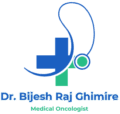Cancer is a life-changing diagnosis not just for the patient but for the entire family. One of the most critical steps after being diagnosed with cancer, or even when you suspect it, is finding the right oncologist. In Nepal, with growing awareness and expanding medical infrastructure, it has become increasingly possible to access quality cancer care within the country. However, due to lack of information, stigma, or rural-urban healthcare gaps, many patients and families still struggle to find the right doctor on time.
If you or your loved one is facing a cancer diagnosis, this article will guide you on how to find a qualified, experienced, and compassionate oncologist in Nepal.
1. Understand the Types of Oncologists
Before you begin your search, it’s helpful to know that oncology is a specialized field with different types of doctors for different needs:
- Medical Oncologists: Focus on treating cancer using chemotherapy, targeted therapy, immunotherapy, and hormonal therapy.
- Surgical Oncologists: Specialize in removing tumors through surgery.
- Radiation Oncologists: Use radiation therapy to treat cancer.
- Pediatric Oncologists: Treat cancer in children.
- Palliative Care Oncologists: Focus on pain relief and quality of life, especially for advanced cancer.
Understanding which type of oncologist you need helps narrow down your search.
2. Start With Reputed Cancer Hospitals
Nepal has made significant progress in cancer care in recent years. Some of the best places to find qualified oncologists are:
- Nepal Cancer Hospital and Research Center (NCHRC) – Harisiddhi, Lalitpur
- Bhaktapur Cancer Hospital – Bhaktapur
- BP Koirala Memorial Cancer Hospital – Bharatpur, Chitwan
- Tribhuvan University Teaching Hospital (TUTH) – Maharajgunj, Kathmandu
- Civil Service Hospital – Minbhawan, Kathmandu
These institutions offer multidisciplinary cancer care and have experienced teams of oncologists. Most also offer patient counseling and have departments for medical, surgical, and radiation oncology.
3. Seek Referrals from Trusted Medical Professionals
Often, the best recommendations come from:
- Your family doctor
- A general physician or gynecologist
- A local hospital or clinic
Doctors in other specialties can help refer you to oncologists they trust. If you’re living outside Kathmandu Valley or in a rural area, ask for referrals from district hospitals or medical colleges.
4. Use Online Resources and Directories
With internet access growing across Nepal, you can find oncologists online. Some ways include:
Hospital websites: Check doctor profiles on official hospital websites.
Health directories: Platforms like Hamro Doctor, DoctorFind, or HealthPost Nepal offer listings and reviews.
Social media pages of cancer hospitals often share information about specialists and their schedules.
LinkedIn or professional profiles of doctors, especially for urban-based hospitals.
Make sure to verify the doctor’s credentials and experience through multiple sources.
5. Check Credentials and Experience
Once you’ve identified a few names, take time to evaluate:
- Where the doctor received their MBBS and oncology specialization
- Fellowships or international training, especially in medical oncology
- Years of experience in treating specific types of cancer
- Participation in research or published papers (a sign of staying updated)
- Membership in national or international cancer societies like ASCO, ESMO, or SAARC Oncology
Doctors like Dr. Bijesh Raj Ghimire, for example, are highly reputed for their experience, international exposure, and leadership in Nepal’s oncology sector.
6. Consider the Human Side: Communication and Compassion
Cancer treatment is not just clinical. It’s deeply emotional. Look for an oncologist who:
- Takes time to explain your condition
- Discusses treatment options clearly
- Respects your values and decisions
- Encourages questions and family involvement
You can often get a sense of this from your first consultation or patient testimonials.
7. Consider Logistics and Cost
Access to an oncologist is also about:
- Proximity: Can you reach the hospital regularly for treatment?
- Appointment availability: How long is the waiting time?
- Cost and insurance: Does the doctor or hospital accept government subsidies or health insurance?
Some public hospitals offer subsidized care, while private institutions may offer packages or financial counseling.
Final Thoughts
Finding a trusted oncologist in Nepal is no longer as difficult as it once was. With growing infrastructure, trained specialists, and digital access, cancer patients and their families now have more choices. The key is to act early, stay informed, and not hesitate to ask questions.
Whether you’re in Kathmandu or Karnali, remember this: The right oncologist is not just someone who treats your cancer, but someone who walks with you through the entire journey with skill, empathy, and hope.

